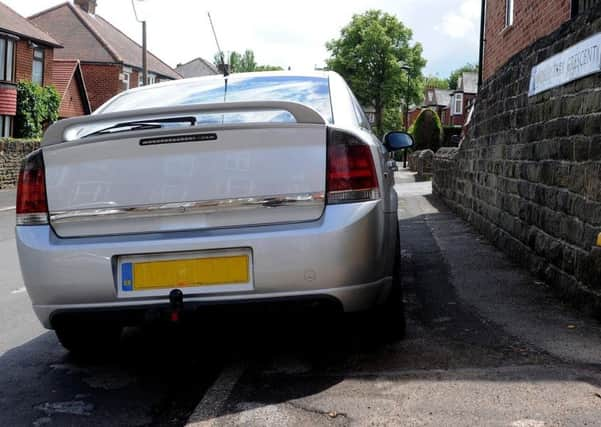Drivers could face £70 fine for parking on pavements


Laws allowing local authorities to ban pavement parking in London should be rolled out across the country to crack down on motorists endangering lives, councils say.
The Local Government Association (LGA), which represents more than 370 councils in England and Wales, says all councils need extra flexibility to introduce bans if needed.
Advertisement
Hide AdAdvertisement
Hide AdThis could free up congested pavements and stop pedestrians – particularly the blind and parents with prams and babies – from having to walk out into roads and risk their lives.
The call comes as communities across the country issue safety warnings about pavement parking.
The ban on pavement parking has already been in place in the capital for the past 40 years. Under existing measures, motorists are barred from pavement parking unless expressly permitted by a council in the capital.
However, outside London mounting the kerb is generally allowed apart from where vehicles are causing an obstruction, for example forcing some vehicles to wait while others pass, or on roads with other restrictions such as double-yellow lines. Local authorities can use existing Traffic Regulation Orders to ban pavement parking on certain roads but it is a time-consuming, expensive and bureaucratic process.
Advertisement
Hide AdAdvertisement
Hide AdLGA Transport spokesman Coun Martin Tett said: “Councils in the capital have been able to ban pavement parking for many years and it seems a nonsense that local authorities outside London remain unable to do this.
“Local authorities need this power to respond to concerns raised by their communities, for example if a street is becoming dangerously congested or pedestrians are being forced to step out into the street to get round parked vehicles. This is particularly dangerous for blind or partially-sighted people and mums and dads with prams.
“Pavement parking and damaged pavements is one of the biggest complaints from pedestrians. In addition, repairing kerbs, verges and pavements damaged by pavement parking is expensive at a time when councils continue to face huge funding pressures as a result of further cuts to funding from government. The money spent on this would be better used to plug the £12 billion roads repair bill we currently face as a nation.
“Councils would carefully consult with communities before banning pavement parking and this is done sparingly in response to concerns which they have raised. This will enable them to better protect vulnerable pedestrians and provide a more consistent approach for all road users.”